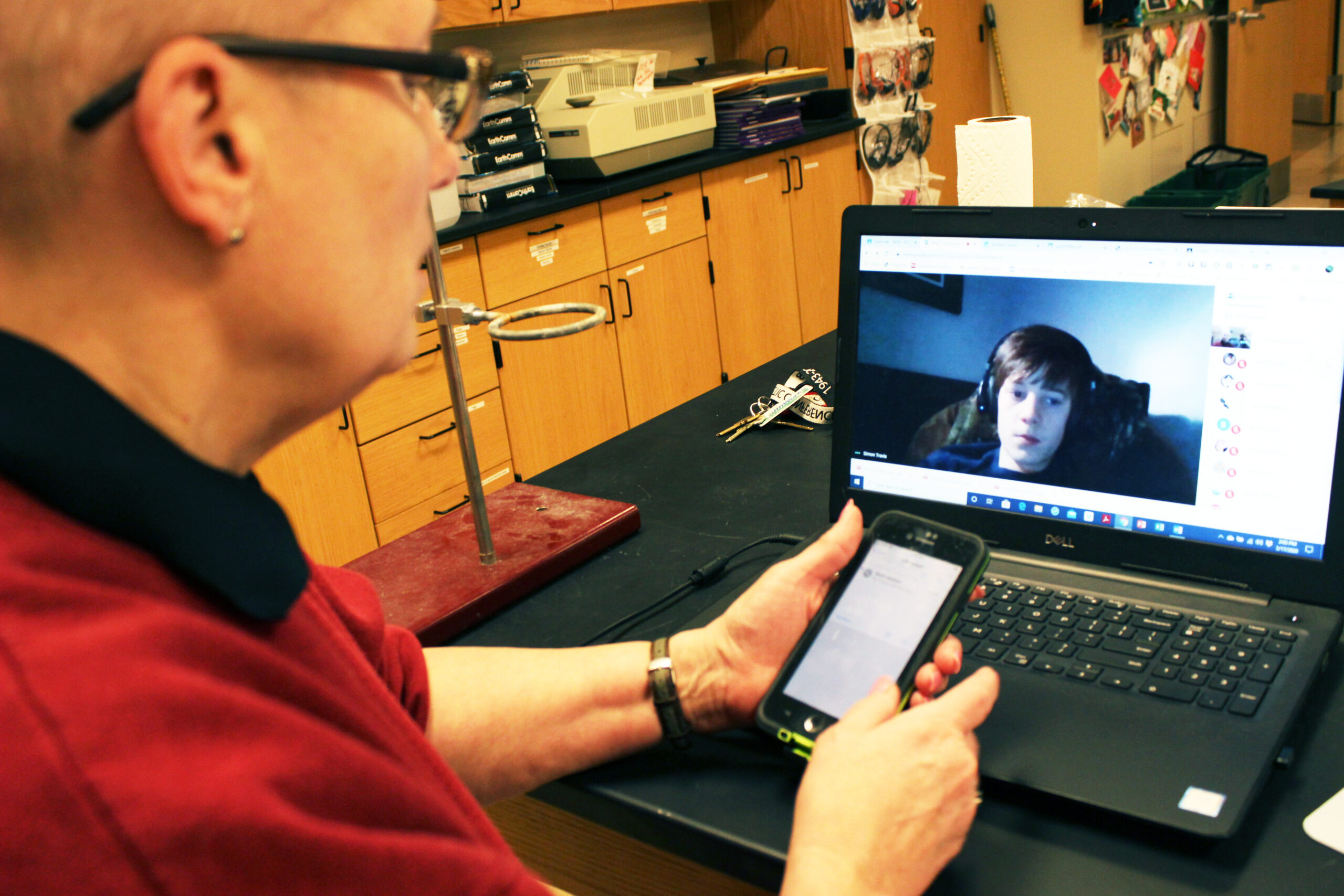Television’s Bill Nye (the Science Guy) would love it.
MacGyver — the 1980s TV detective who crafted crime-fighting implements out of paper clips, chewing gum and the like — surely would have, too.
Lois Campbell’s current assignment for her eighth-grade science students at Trinity Christian School is a nod to both of the above.
Campbell, who teaches STEM classes at the faith-based school in Sabraton, is having those students assemble “robotic” arms for an assignment.
And the pandemic has to sit in the corner. We’ll get to that.
In the meantime, there’s a catch, concerning Campbell’s homework.
Students, in MacGyver fashion, may only use what they find in their homes — be it straws, rubber bands, Duct tape, what have you, to craft the arm.
“They can’t go out of their house to get anything for the assignment,” Campbell said Wednesday.
“They can’t leave the house.”
That’s because they aren’t supposed to leave the house, anyway.
When Gov. Jim Justice ordered the state’s public schools closed in response to the coronavirus threat, Trinity’s administrators went along for safety, even though their school isn’t part of the system.
And West Virginia has notched its first COVID-19 case since the governor’s directive.
Just because Trinity’s actual building is shut down, however, doesn’t mean the learning is locked out.
Trinity this week has been holding “Cyber School,” going live and online with age-appropriate lesson plans in a modified schedule that also includes video conferencing students.
The effort launched Monday with the aid of Google teleconferencing programs, Superintendent Michelle Stellato Belt said.
“Of course, there were a couple of glitches,” she said, “but we got them worked out.”
Trinity mobilized last week when it was becoming more and more likely that schools across West Virginia would be closed in response to the virus, which can be fatal.
That meant retooling the curriculum for 321 students, from pre-kindergarten through 12th grade.
“We went from a brick-and-mortar building to an online learning academy in three days,” the superintendent said. “Our teachers are amazing.”
What’s even more amazing, she said, has been the student response.
“They’re still able to engage with each other,” she said.
“Our kids have started leaving their monitors on so they can talk to each other during lunch. It’s a way where everyone can connect and feel normal.”
But not too normal, Campbell said, chuckling.
The teacher is pushing creativity in her lesson plans. The robotic arm made of household materials is just one example.
“I’m not going to lecture online,” she said. “My labs at school are hands-on, and they still are.”
Drew Boczek, a Trinity freshman who had just completed one of those labs, in fact, gave Cyber School the ultimate testimonial.
“It’s just like being in class,” he said.
TWEET @DominionPostWV




